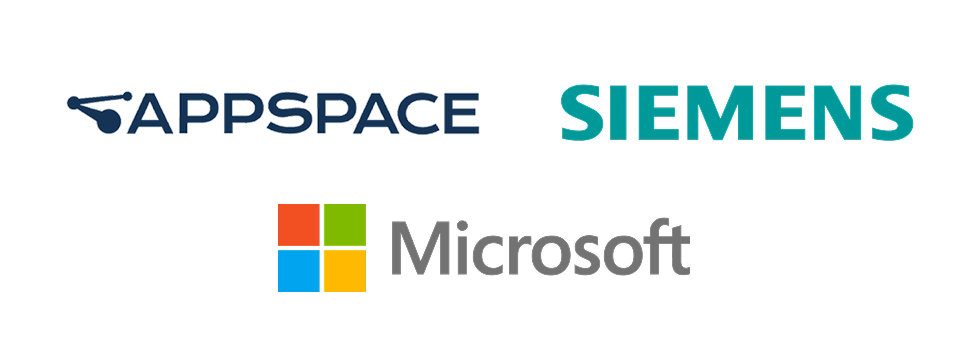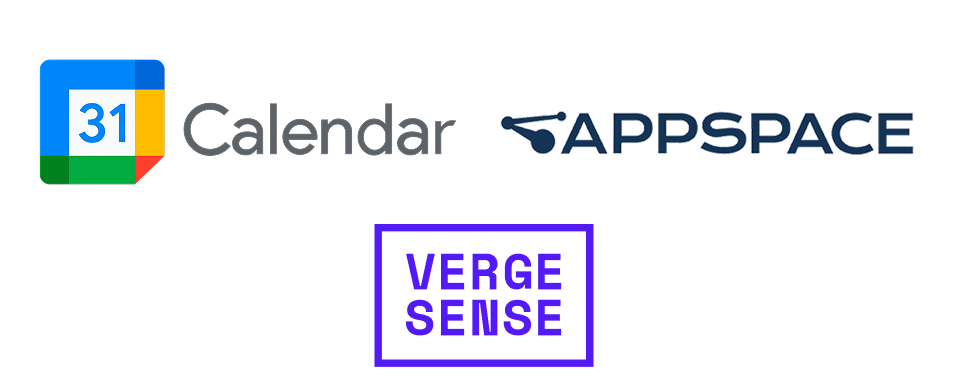Trusted by the largest brands in the world
Market-leading office maps and indoor navigation
-
Use Pointr's revolutionary AI-powered MapScale® engine to create interactive maps and keep them up to date in minutes
-
Enable seamless wayfinding across entire workplace campuses, including floor to floor, building to building (including indoor-to-outdoor transitions and vice versa), and accessibility-friendly options
-
Access Pointr's state of the art maps and location systems even with no dedicated app, thanks to our app-free Pointr Express® solution

Transform your office into a smart workplace
-
Save money with more information for smart automation of HVAC, temperature, and lighting systems
-
Get more insight into how your workplace does - and doesn’t - support work effectively, helping you optimize layouts
-
Make better-informed real estate decisions by identifying over- and under-utilized areas and features of your workplace, enabling you to focus upon what works
-
Enhance your maps with flexible integrations, rich point of interest data, and deep links to other workstreams
-
Unlock advanced location use cases, including Mark my Car, which can help staff and visitors easily find their way to and from appointments or meetings and back to exactly where they parked
.png?width=1413&height=1140&name=mark-my-car-phone%20(3).png)
Empower your team
-
Enable dynamic room and desk booking use-cases, layered on Pointr's market-leading maps
-
Reduce downtime for employees visiting from satellite offices
-
Customize what specific teams or employees see on their version of the map with role-based views
-
Showcase office amenities
-
Improve employee productivity and collaboration
-
Make your workplace attractive for the back-to-the-office push
.png?width=1413&height=1140&name=room-booking-phone%20(3).png)
Our Integrations
Workplace Apps
Leverage Pointr's market-leading maps and wayfinding in the popular workplace apps


IWMS
Enhance your IWMS or workplace management tool by embedding Pointr's solutions directly

Room Availability
Enable on-map bookings and 'navigate me to my desk' functionality with workplace booking tools

Office Tools
Make Pointr's solutions part of your every day technology stack with integrations with tools like Slack

Workplace Apps
Leverage Pointr's market-leading maps and wayfinding in the popular workplace apps
.png?width=400&height=147&name=Frame%20631359%20(2).png)
Room Availability
Enable on-map bookings and 'navigate me to my desk' functionality with workplace booking tools
.png?width=298&height=110&name=Frame%20631363%20(1).png)
Office Tools
Make Pointr's solutions part of your every day technology stack with integrations with tools like Slack
.png?width=298&height=110&name=Frame%20631364%20(1).png)
Watch the webinar: Building LinkedIn's Hybrid Future!
Advanced Capabilities
Analytics
Analyze the most over- and under-utilized parts of your space, make informed real estate decisions, and optimize your office.
Mark My Car
Staff and guests can mark their parking spot when they arrive, then after their day in the office navigate exactly to their car.
Accessibility
Ensure staff and visitors are assisted in finding routes that suit them, avoiding stairs or escalators.
Geofencing
Alert staff when they enter or exit a particular area. Analyze the flow of staff through different zones, identify bottlenecks and improve your workplace's efficiency.
Easy integrations
Our SDKs cover iOS, Android and web, making for straightforward integrations. We also have robust APIs for integrating real-time data.
The Pointr Difference
Office maps
Modern offices and corporate campuses are getting bigger and more complex every year. This means that for staff and visitors alike, seemingly simple tasks like finding their way to a particular location or arranging a meeting can become time-consuming. Recent surveys report that 70% of workers on corporate campuses waste up to 15 minutes looking for a space to meet.
Without question, one of the critical pieces of infrastructure for a modern smart workplace is office maps. Maps are the foundation upon which all additional indoor location functionality - including positioning, navigation and geofencing - is based, and can also be relied upon as a standalone feature of any workplace app.
Office maps can help new starters and guests navigate large offices, help colleagues find one another quickly, and can help manage a facility's energy use and occupancy levels.
Pointr's state-of-the-art indoor mapping system can create beautiful, intuitive, interactive maps that fit seamlessly into your workplace app via our SDK. Our AI-enhanced MapScale® technology is capable of creating and updating hundreds of maps in minutes, making us an ideal workplace partner for those looking to digitize hundreds or thousands of venues regularly.
Office wayfinding
The growing ubiquity of map apps in everyday life has conditioned users to expect more from maps than a simple visual. One of the most common expectations for modern mapping systems - whether indoor or outdoor - is that the map will be wayfinding-enabled.
Even the best designed and easily comprehensible map can be challenging to use at times, particularly when the map depicts a complex indoor environment such as an office. Asymmetrical layouts, vast amounts of detail, campuses that span both indoor and outdoors, and multiple floors all combine to make picking the most efficient route from one point to the next a challenge for users.
With smart and dynamic indoor navigation overlaid, however, the map becomes an invaluable piece of time-saving and collaboration-encouraging technology. Colleagues can share their location with each other and find the quickest route to meet, while guests and employees can be routed to the nearest available desk or meeting room.
Pointr's smart in-office wayfinding technology, twinned with our outstanding mapping abilities, make us the top choice for Fortune 100 companies.
Office analytics
Offering state-of-the-art office maps and in-office navigation has the knock-on effect of generating informative data about how your office real estate is being utilized.
-
Use real-time visitor data to make smart building decisions
-
Use aggregated data over time to understand where people actually spend time in your workplace, informing layout and design adjustment that optimize your workplace desirability and productivity
-
Highlight where meeting rooms or areas are under-utilized, where energy can be saved, and where money can be saved in future real estate decisions
-
Data privacy and security is critical to Pointr's analytics platform:
-
ISO and GDPR compliant
-
Anonymized user data
-
All data stored client-side
-





.png?width=298&height=110&name=Frame%20631365%20(1).png)

